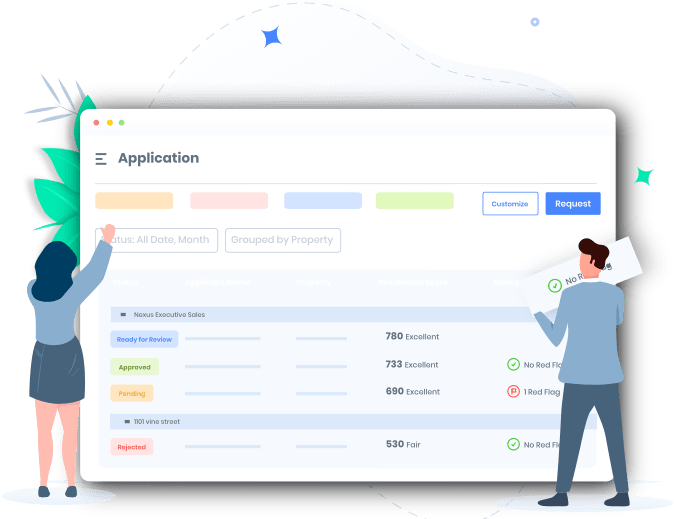If you’re a landlord in Florida, you must grasp background checks’ nuances to make informed tenant screening decisions.
Understanding the definition, components, costs, and laws is crucial for safeguarding your property and ensuring reliable tenants.
By diving into conducting checks effectively, you mitigate risks, enhance safety, and maintain positive relationships.
Embracing thorough screening’s benefits can reduce turnover, prevent fraud, and ensure on-time payments, impacting your rental business’s success significantly.
Understanding the Purpose and Components
As a landlord in Florida, you need to grasp the significance of background checks which encompass credit reports, criminal histories, income verification, eviction records, and rental applications to make informed tenant decisions.
Conducting a thorough background check in Florida is crucial to understanding the financial stability, criminal background, and rental history of potential tenants. A comprehensive background check Florida provides valuable insights into a tenant’s ability to pay rent on time, their trustworthiness, and the likelihood of any potential lease violations.
By carefully examining these components through a background check in Florida, you can mitigate risks, protect your property, and ensure a positive landlord-tenant relationship.
Understanding what is a level 2 background check in Florida can help you tailor your screening process to meet legal requirements and make well-informed decisions.
Cost and Legal Regulations
Understanding the cost and legal regulations surrounding background checks in Florida is essential for landlords. When conducting a background check in Florida, it’s crucial to consider the associated expenses. Costs vary depending on the type of background check required, such as credit reports, criminal history, and eviction records.
Legal regulations governing background checks in Florida include restrictions on credit and criminal background checks, consent requirements, and specific denial criteria. Differentiating between level one and level two background checks is key, along with understanding Miyas Law implications.
Staying informed about the cost breakdown and legal boundaries of background checks in Florida ensures landlords conduct screenings compliantly and effectively.
Scope, Timeframe, and Considerations
When conducting background checks in Florida, you must consider the scope, timeframe, and various considerations that impact the screening process.
Understanding the different levels of background checks, such as level one and level two screenings, is crucial. These levels determine the depth of the check and the information obtained.
Additionally, it’s essential to take into account employment considerations for individuals with specific criminal convictions. Compliance with ban-the-box policies and regulations is also vital.
Moreover, being mindful of the timeframe restrictions outlined in the Fair Credit Reporting Act is necessary to ensure that the background check process is conducted within legal boundaries and timelines.
Conducting Checks Effectively
Conducting thorough background checks is essential for landlords in Florida to ensure tenant reliability and property safety.
To conduct checks effectively, start by gathering necessary information from applicants, including consent for the screening process. Utilize reliable third-party providers like TransUnion SmartMove for comprehensive screenings that cover credit reports, criminal histories, and eviction records.
Verify applicants’ income to assess their financial stability and ability to meet rental obligations. Follow a structured process, reviewing all findings carefully and in compliance with Florida laws.
Benefits and Impact of Screening
To enhance your understanding of tenant reliability and property safety, it’s crucial to grasp the benefits and impact of thorough screening processes as a Florida landlord. Implementing comprehensive background checks can significantly reduce tenant turnover rates, enhance liability protection, and contribute to a safer rental environment.
By screening applicants diligently, you not only increase property value but also foster positive landlord-tenant relationships based on trust and transparency. Effective screening plays a vital role in identifying potential fraud, preventing evictions, and understanding the risks associated with each tenant.
Moreover, it helps ensure tenant reliability, leading to on-time payments, conflict avoidance, and a reduction in crime within your rental communities.
Conclusion
Now that you have a solid understanding of a Florida background check, you can confidently navigate the screening process to ensure the reliability and safety of your tenants.
By conducting thorough checks effectively and following legal regulations, you can protect your investments and promote a secure rental environment.
Embracing the benefits of screening won’t only reduce risks but also enhance the success of your rental business.
Make informed decisions to safeguard your property and maintain positive landlord-tenant relationships.








